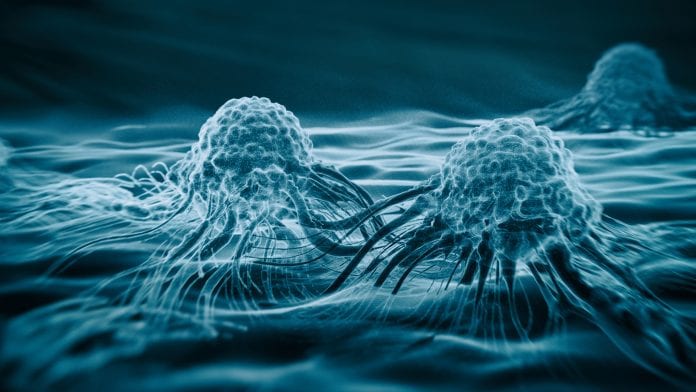
New insights on why identical mutations cause different types of cancer could lead to improvements in targeted treatment, researchers say.
Researchers at the German Cancer Consortium (DKTK), the Technical University of Munich (TUM), and the University Medical Center Göttingen have demonstrated that cells originating from different organs are differentially susceptible to activating mutations in cancer drivers. The findings show, for the first time, that tissue-specific genetic interactions are responsible for the differential susceptibility of the biliary and the pancreatic epithelium towards transformation by oncogenes.
The study has been published in Cancer Discovery 2021.
The research team hopes that these findings could lead to more precise therapeutic decision making in the future. To date, there has been no significant improvements in the treatment of pancreatic and biliary tract cancer in the last few decades and there are no effective targeted therapies.
Dieter Saur, DKTK Professor for Translational Cancer Research at TUM’s university hospital Klinikum rechts der Isar, DKTK partner site Munich, said: “The situation for patients with pancreatic and extrahepatic bile duct cancer is still very depressing, with approximately only 10% of patients surviving five years.
“To discover novel therapeutic strategies that improve prognosis of these patients, it is essential to understand the fundamental genetic networks and interactions that drive these tumours in a tissue-specific fashion. This will allow highly precise molecular interventions in future.”
Development of biliary tract and pancreatic cancer
The study examined the development of biliary tract and pancreatic cancer in mice, replacing the normal ‘oncogenes’, PIK3CA and KRAS, with a version containing a mutation identical with that in human cancers. Expression of these oncogenes in the common precursor cells of the extrahepatic bile duct and the pancreas led to very different outcomes. Mice with the mutated PI3K gene developed mostly biliary tract cancer, whereas mice with the mutated KRAS gene instead developed exclusively pancreatic cancer.
The findings came as a surprise to researchers, as both genes are mutated in both human cancer types. Further investigation discovered the fundamental genetic processes underlying the differential sensitivity of the different tissue types towards oncogenic transformation.
Chiara Falcomatà, the first author of the new publication, said: “Our results are an important step toward solving one of the biggest mysteries in oncology: Why do alterations of certain genes cause cancer only in specific organs?
“Our studies in mice revealed how genes co-operate to cause cancer in different organs. We identified main players, the order in which they occur during tumour progression, and the molecular processes how they turn normal cells into threatening cancers. Such processes are potential targets for new treatments.”
In the mice, the team uncovered a step-by-step process of genetic alterations driving the development of these cancer types. Some cooperating genetic events over activate the PI3K signalling pathway, making them cancerous. Others disrupt regulator proteins, inactivating their ability to suppress cancer progression.
Günter Schneider, Professor for Translational Cancer Research at the University Medical Center Göttingen, said: “Understanding the genetic interactions in different cancer types will guide more precise therapeutic decision making in the future.
“Our ability to engineer specific genetic alterations in mice allows us to study the function of cancer genes and to model specific cancer subtypes. Such mouse models are also invaluable for testing anticancer drugs before using them in clinical trials.”
Roland Rad, Professor at TUM and a DKTK researcher, said: “What we showed is that the function of an oncogene is different depending on the tissue type and what other genes are altered.
“These oncogenes need to hijack the intrinsic signalling network of a specific tissue to allow cancer development. Interestingly, such networks exist only in specific tissue types, making them susceptible for cancer development.”
Researchers say that the findings are key to the development of future therapeutic interventions.
Professor Saur concluded: “The concept that multiple tissue-specific genetic interactions drive cancer progression demonstrates that no single gene can predict responsiveness of a cancer to a particular therapy.
“In future, it is key to mechanistically understand the tissue-specific determinants of therapeutic response and resistance to get precision medicine to the next level.”







